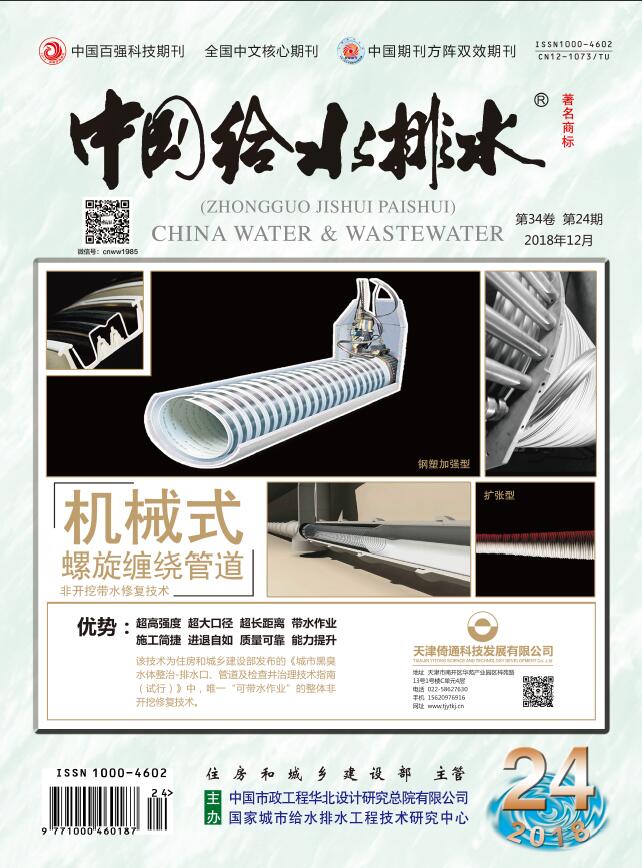SONG Xin,SUN Shi-quan,SHANG Guang-qi,et al.Effect of Nitrogen to Sulfur Ratio on Characteristics of Aerobic Granular Sludge and Its Nitrogen and Sulfur Removal Performance[J].China Water & Wastewater,2021,37(19 19):91-97.
Effect of Nitrogen to Sulfur Ratio on Characteristics of Aerobic Granular Sludge and Its Nitrogen and Sulfur Removal Performance
China Water & Wastewater[ISSN:1000-4062/CN:12-1073/TU]
volume:
第37卷
Number:
19 19
Page:
91-97
Column:
Date of publication:
2021-10-01
- Abstract:
- Aerobic granular sludge was cultivated by inoculating flocculent sludge and changing the influent nitrogen to sulfur ratio (N ∶S). Effects of nitrogen to sulfur ratio on aerobic granulation and variation of COD, nitrogen and phosphorus concentrations in the reactor were investigated, and the changes of the microbial community composition were analyzed by microbial genetic sequencing. When the N ∶S was 2 ∶1 and 4 ∶1, the sludge in the reactor was in a continuous bulking state and could not granulate. At this time, MLSS was 1.104-3.647 g/L, SVI5 was 137-416 mL/g, and SV5 was 40%-60%.When the N ∶S increased to 8 ∶1, the sludge loss was controlled, and the mature aerobic granular sludge with the particle size in the range of 0.4-0.8 mm was appeared on the 72nd day. At this time, MLSS was 3.27-5.17 g/L, SVI5 was 36-67 mL/g, and SV5 was 12%-20%. After granulation, the average removal efficiencies of COD, NH4+-N, TN and TP were 95.51%, 99.62%, 61.30% and 25.62%, respectively. However, the removal efficiency of sulfide reached 99% during the cultivation. The microbial community diversity of mature granular sludge was detected, and Paracoccus, Meganema and Azoarcus belonging to Proteobacteria were the dominant bacteria.
Last Update:
2021-10-01

